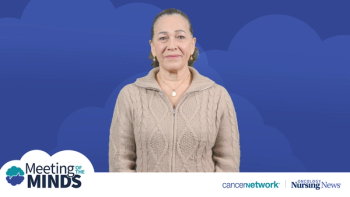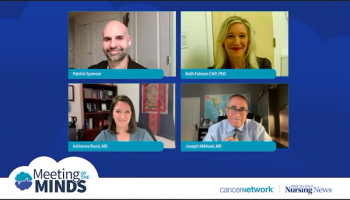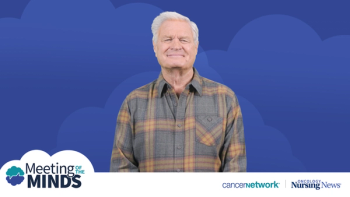
This segment explores the treatment journey of a 55-year-old mother and high school teacher with ALK-positive NSCLC and brain metastases, focusing on her experience with lorlatinib therapy.

This segment explores the treatment journey of a 55-year-old mother and high school teacher with ALK-positive NSCLC and brain metastases, focusing on her experience with lorlatinib therapy.

Dr. Mikhael and Dr. Rossi discuss the safety profiles of CAR-T therapies for multiple myeloma, focusing on common and impactful adverse events, comparisons between ide-cel and cilta-cel, alignment with clinical trial data, and how safety considerations influence treatment selection for diverse patient populations.

Expert panelists explore approaches to grading and managing Cytokine Release Syndrome (CRS) in CAR-T therapy, discussing effective strategies to mitigate severity and key differences in CRS management protocols between ide-cel and cilta-cel.

The discussion focuses on monitoring and managing neurologic toxicities like ICANS in CAR-T therapy, highlighting tools for early detection, effective management strategies, and approaches to communicating risks with patients and caregivers.

The conversation examines adverse events beyond CRS and neurotoxicities in CAR-T therapy, focusing on strategies for managing prolonged cytopenias, infection prophylaxis, and unique adverse events associated with ide-cel and cilta-cel.

This segment highlights the treatment journey of a 68-year-old IT professional with high-risk multiple myeloma, detailing progression after initial D-RVd therapy, refusal of ASCT, and successful transition to cilta-cel CAR-T therapy with manageable adverse events.

The discussion delves into long-term monitoring strategies for CAR-T patients, exploring differences between academic and community settings and emerging long-term adverse effects as clinical experience with CAR-T therapy grows.

The discussion highlights the role of multidisciplinary collaboration in CAR-T patient care, emphasizing effective coordination among specialists, primary care providers, and community oncologists, and strategies for ensuring consistent communication and continuity of care for patients in remote locations.

The discussion focuses on essential components of patient education and support for long-term CAR-T survivors, addressing strategies to sustain quality of life, manage late therapy effects, and meet the distinct long-term care needs of ide-cel and cilta-cel recipients.

The conversation explores strategies for collaboration between academic centers and community practices in delivering optimal long-term care for CAR-T patients, highlighting useful resources for community oncologists and approaches to managing referrals for follow-up care.